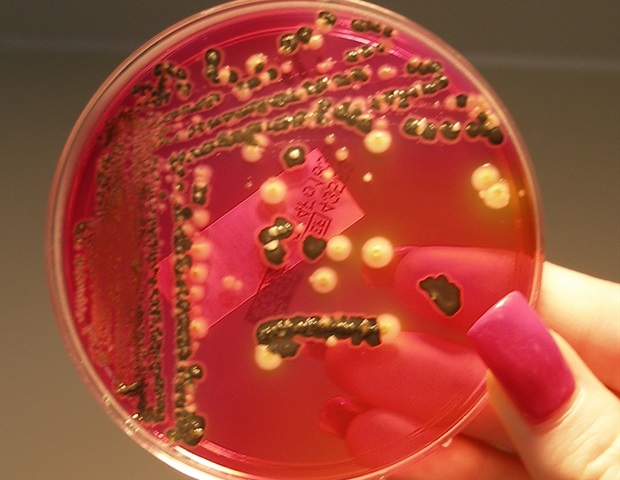NewsColony
Toxin-carrying virus implicated in the emergence of new Salmonella strain in pigs


Researchers at the Quadram Institute have implicated a toxin-carrying virus in the emergence of a new strain of Salmonella in pigs.
Salmonella is associated with a large number of cases of foodborne infection resulting in diarrhoea and in some cases severe complications. Half of all Salmonella infections in the European Union are linked to pigs, and a new strain called ST34 is dominant in this livestock animal. ST34 has now spread in pig populations worldwide and is pandemic.
New strains are known to have emerged repeatedly since surveillance records began over 60 years ago. The ST34 strain is a type of Salmonella called Typhimurium, which accounts for a quarter of all Salmonella infections. In the UK over half of all Typhimurium infections are now caused by the ST34 strain. Typhimurium has been increasing as a proportion of all Salmonella infection for more than a decade, largely due to the emergence of this new strain.
Unlike a related Salmonella called Enteritidis that has been largely controlled in layer hen flocks in the UK, little headway has been made in intervening years to control Salmonella Typhimurium. The occasional replacement of the dominant epidemic strain of Typhimurium causing disease may make this a moving target. Therefore, understanding why new strains emerge and what makes them distinct from previous strains is important to devise ways of tackling this pathogen.
Viruses are best known for causing some of the worst infections in people throughout history, and the current pandemic SARS-CoV-2 is no exception. They are very small packages of genetic material that require cells to replicate their genetic material, and in doing so cause disease. There are also viruses, called bacteriophages, that use bacteria to replicate and in doing so kill the bacterium. However, some are also able to hide inside the bacterial cell by merging with the bacteria’s genetic material.
In a new paper, published in the journal Microbial Genomics, the researchers report that this is what happened perhaps hundreds of times during the emergence of the ST34 pandemic strain and that this has helped the bacteria spread globally.
Related Stories
The research was led by Eleonora Tassinari and Professor Rob Kingsley from the Quadram Institute and University of East Anglia and his research group, working with Public Health England, Animal and Plants Health Agency, the Earlham Institute and Teagasc Food Research Centre. Their study was funded by the Biotechnology and Biological Sciences Research Council, part of UKRI.
They found that the common ancestor of the epidemic in UK pigs existed around 30 years ago but went unnoticed until 2005 when surveillance by the UK governments Animal and Plant Health Agency (APHA) first picked up ST34 in low numbers. Analysis of the genome sequence from human infections using data from Public Health England (PHE) indicated that a bacterial virus called mTmV infected ST34 on multiple occasions starting around 2002.
By analyzing the population structure of ST34 it was clear that Salmonella harboring the mTmV virus in their genetic material became more numerous over time and that they had gained a competitive advantage over their brethren lacking the virus. Inspecting the virus in more detail revealed that it carried a gene called sopE encoding a ‘toxin’ that is known to help the Salmonella to infect their animal hosts species, cause diarrhea and be passed on to new hosts in food and feed.
The mTmV virus seems to have been helping Salmonella spread, and because it was living in the Salmonella, it was aiding its own survival.”
Prof Rob Kingsley
It is hoped that understanding how and why new strains of Salmonella emerge in livestock will help develop improved strategies to reduce its incidence, making our food supply safer and healthier.
Journal reference:
Tassinari, E., et al. (2020) Whole-genome epidemiology links phage-mediated acquisition of a virulence gene to the clonal expansion of a pandemic Salmonella enterica serovar Typhimurium clone. Microbial Genomics. doi.org/10.1099/mgen.0.000456.
Source: | Medical News
The post Toxin-carrying virus implicated in the emergence of new Salmonella strain in pigs appeared first on NewsColony.
NewsColony
source https://newscolony.com/toxin-carrying-virus-implicated-in-the-emergence-of-new-salmonella-strain-in-pigs/
Comments
Post a Comment